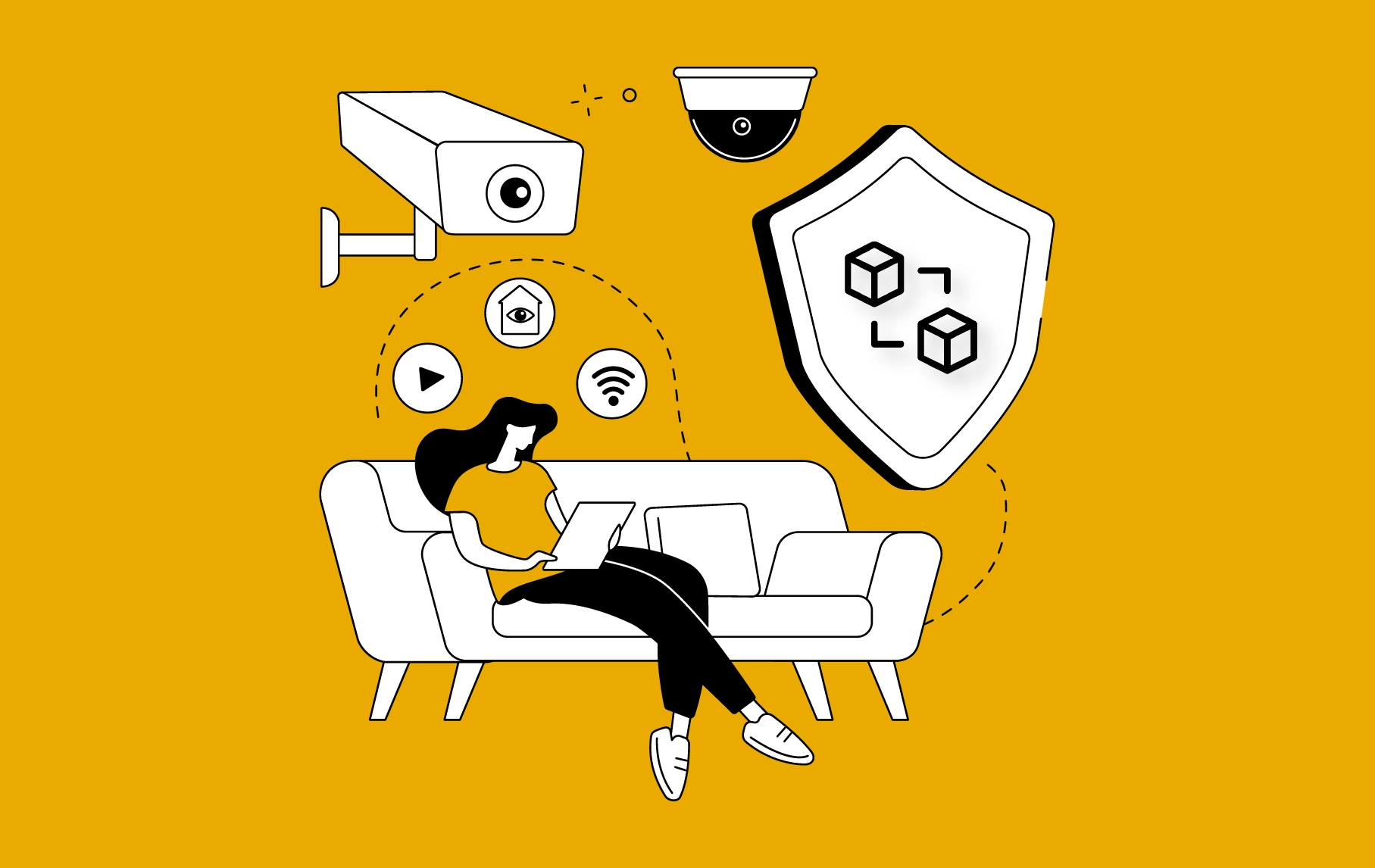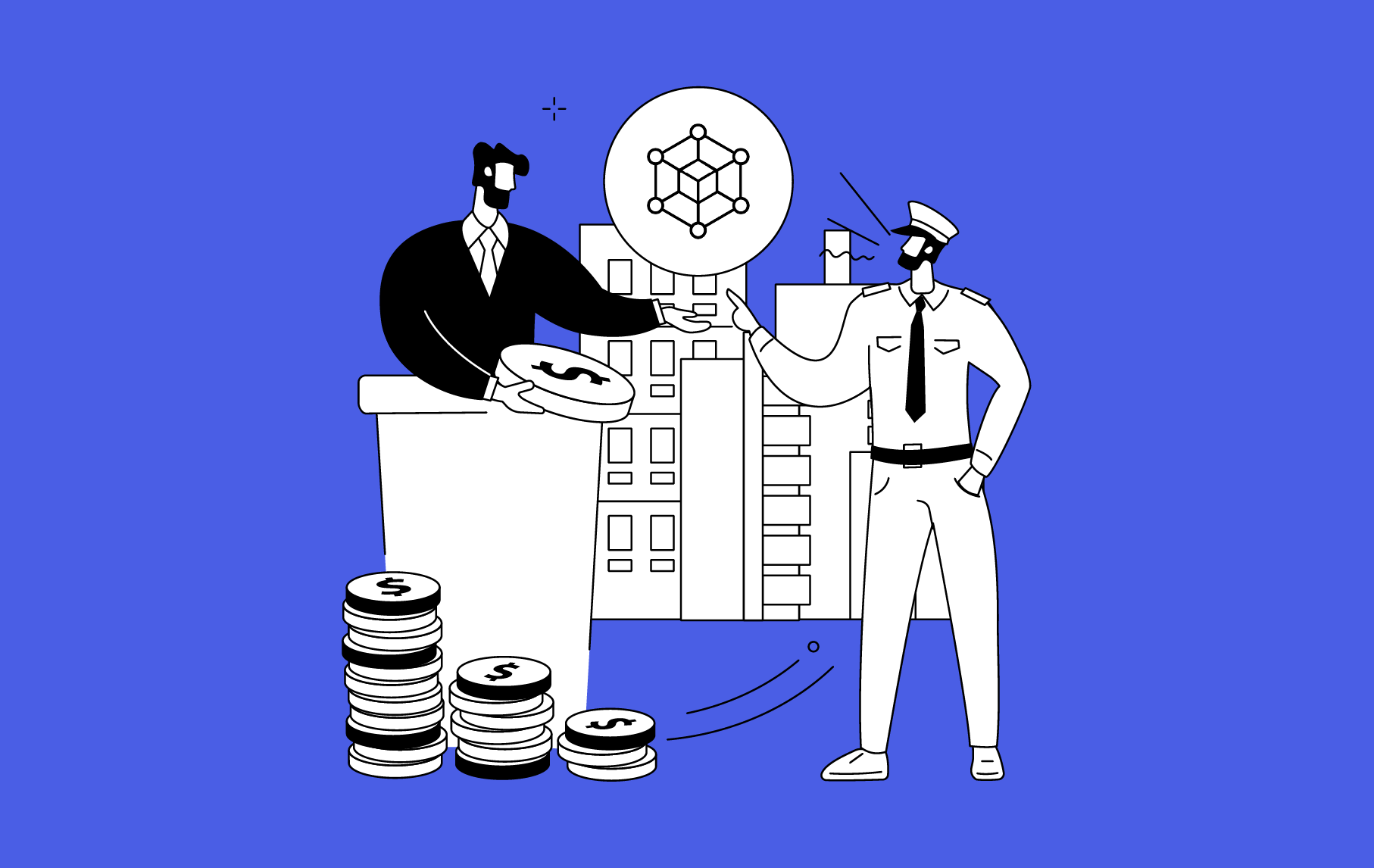- Elements that help blockchain support data privacy
- Blocks and hashing
- Distributed architecture
- Consensus validation
- Encryption
- Public addresses
- The use cases for blockchain data privacy
- 1. Secure messaging
- 2. IoT security
- 3. Secure DNS and DDoS
- 4. Immutable data storage
- 5. Establishing the provenance of software
- 6. Ownership validation
- How can Appinventiv help in making your data secure using blockchain?
The number of phishing attacks aimed at stealing users private data is on an all time high with no sign of slowing down. A massive contributor behind this grim statistics has been a rise in attackers finding new ways to hack into systems.
Now with both finances and reputation being at stake, businesses have started turning towards technology to make their processes hack-proof, one of which is using blockchain for data privacy. The modern day hackers are always on the move to steal data like Intellectual Property, health records, Personal Identifiable Information, and financial data through strategies like advanced ransomware methods and DDoS attacks. Considering the way the technology is built, blockchain and data privacy usually go hand-in-hand when it comes to solving these issues.
In this article, we are going to dissect into the many reasons why using blockchain data privacy for businesses makes sense. Now while you would already know how blockchain technology works, the elements that go into making data privacy using blockchain an efficient and effective task are specific.
Elements that help blockchain support data privacy
The fundamentals of blockchain work on an immutable architecture that is trustless in nature. There are multiple factors, embedded into the ecosystem, which make the technology an appropriate choice for data privacy and security.
Blocks and hashing
Blockchain stores data in the blocks – ones that are time stamped, signed by the creators and carry a header and a body. These data-containing blocks are connected through a chain in a way that a block contains cryptographic hash of the previous block, which ensures the immutability of the system and blockchain data protection.
Distributed architecture
Another factor that makes blockchain data privacy a hero move for businesses is the fact that it follows a distributed architecture with no single point of failure. The risk gets dispersed across multiple nodes on a geographically wide network, making it impossible for the attackers to target the data.
Consensus validation
Any modification in the block would require different authorized members to reach a consensus whether the change should be taken forward. This added to the fact that any change in the blockchain network gets highlighted to every member on the network makes it nearly impossible for hackers to attack the system stealthily.
Encryption
The amount of encryption that goes behind ensuring privacy and security on blockchain is massive. The technology typically uses two kinds of encryption, each with their share of subsets and branches – asymmetric-key algorithms, and hash functions across every node, ensuring that the data stored across the network is unusable for non authorized users.
Public addresses
Another factor that helps back privacy and security in blockchain is that every node consists of a private key and public address. So when a node takes part in any transaction only the public address gets shared which is a combination of letters and numbers. People on the network are able to see the transaction and the combination of letter and number but not the details that are stored in the private key.
These factors/features are what work behind the blockchain privacy solutions but knowing how these translate into the use cases of blockchain for data privacy is something that directly impacts and interests business owners. Let us address that in the next section.
The use cases for blockchain data privacy
The answer to how does blockchain support data privacy is a combination of already established use cases and new applications being developed on an everyday level. So the ways to put privacy and security on blockchain that are active today might see an upgraded version in the years to come. However, standing where we are today, the technology carries a capability to solve the many business-level security issues.

Here are the different use cases of blockchain data privacy for businesses that makes it the number one choice for increased enterprises and startups efficiency.
1. Secure messaging
A majority of messaging platforms used in businesses – Skype, Microsoft Teams, and Slack, etc. have always been on hackers radar as they carry business data with weak security algorithms. There are a number of messenger apps emerging in the industry built on fully transparent and censorship-resistant structures where every form of communication – calls, video conferences, messages, and file transfers – are end-to-end encrypted. They act as the testament of blockchain and data privacy success.
An example of this can be seen in the Wispr app which is built on the VOBP (Voice Over Blockchain Protocol) security system that employs encryption protocols like AES – 256, making it impossible for third-party users to see the messages.
2. IoT security
One of the biggest applications of data security with blockchain can be seen in the technology’s integration with connected devices. Hackers have already found ways to use edge devices and AI-based home devices to access the entire IT systems, what makes it all the more easy for them is having a central administration of the device.

The combination of blockchain and IoT can be used as a way to introduce data privacy using blockchain – something which can be achieved through multiple ways:
- Enabling a real-time tracking of connected devices and sensor data, looking for content duplicacy from harmful data sources, and embedding consensus algorithms to ensure identity verification.
- Encrypting the information that gets transmitted between the devices on the network.
- Decentralizing the central admin or authority.
3. Secure DNS and DDoS
DDoS or Distributed Denial of Service attacks happen when the users of a target resource like a website or server are denied access to the resource because of hackers slowing the system or shutting it down altogether. On the other hand, DNS attacks happen due the centralized nature of the Domain Name System making it ideal for attackers to infiltrate the connection between the website and IP address. This makes a platform inaccessible and redirectable to scam websites.
The way blockchain privacy protection on this front is by eliminating such attacks by decentralizing all the DNS entries which removes vulnerable points hacked by the attackers.
4. Immutable data storage
Business data theft is one of the biggest concerns that both startups and enterprises face. As shared at the beginning of this article, 2023 is anticipated to witness a $5 million loss due to data breach, a good percentage of which can be attributed to incorrect data storage. While the data protection blockchain mechanism works on the ideology that the data should be stored in a decentralized manner, a majority of businesses keep their records stored on a centralized platform which is only one vulnerable point away from getting hacked.
By using the blockchain data privacy methods businesses are able to save data on the decentralized network within a transparent system where only the people who have the access to the data can view or use it.
5. Establishing the provenance of software
It is considered a good hygiene practice to keep the software updated but only when the update comes from a genuine source. Users sometimes tend to install updates from malicious sources without realizing the impact it would carry. The way blockchain support data privacy helps on this front is by a hashing methodology that enables businesses in verifying downloads, updates, and patches with the software developers.
Another use case here can be of storing and tracking the software update details on the blockchain. This way if there is someone within the team who intends to harm the business by downloading malicious software, their details can be identified.
6. Ownership validation
Proving ownership has become increasingly difficult in the crowded digital space which runs on imitations and copies, making it difficult for businesses to establish if they are partnering with authentic people. The blockchain data privacy solution to this can be found in creating immutable record of authenticity, performing KYC through DLT system, and having cryptographic keys to eliminate plagiarism of documents.
An extension of this blockchain data privacy for businesses application can be seen through the benefits that come with the authentication of individuals and access management –
- Data minimization
- Identity theft elimination
- Sensitive data protection
- Multisignature access control.
These six applications are only the tip of the iceberg when it comes to the entire scope of establishing privacy and security on blockchain. There are a number of ways businesses are still exploring for the technology to aid protection.
[Also Read: How to create private blockchain for enhanced security]
How can Appinventiv help in making your data secure using blockchain?
At Appinventiv, whenever a project comes to us looking to make use of our blockchain development services, our first instinct is to find ways that would cause minimum downtime and be scalable.
From here, our blockchain development service providers spend time in understanding your business requirements and the existing/prospective vulnerable points to ultimately answer how can blockchain be used in business security for your organization
Throughout the product journey, we don’t ignore the fact that blockchain hacks also happen. Right from privacy concerns in public blockchain, phishing attacks targeting private keys to poor governance, and smart contract flaws, hackers have found ways to get into blockchain systems as well. When we build a security-first blockchain platform we ensure that the different ways through which hackers can enter the system are jammed for the blockchain privacy protection solution to work as expected. The result? A league of dApps that have zero instances of data hacks and breaches.
Looking for a similar result for your business? Talk to us about integrating blockchain data protection in your process or project.


Unleashing the Potential of Blockchain in Digital Identity Verification and Management
Digital identity is how the internet uniquely identifies us. It could be our social media credentials, an order ID against the Amazon order, or our email addresses. But what happens when someone takes on our identity with malicious intent? It's more common than we believe. In the US alone, around 1 in 3 Americans have…

Is Blockchain Intellectual Property Protection the Answer to Creators’ Copyright Problems?
The massive influx and easy, inspired generation of data, media, and codes has brought the focus of lawmakers and businesses on patents and IP protection rights. Their demand is similar - the ideas and data created by a party (could be business or users) should not be copied and passed as own by someone else.…











